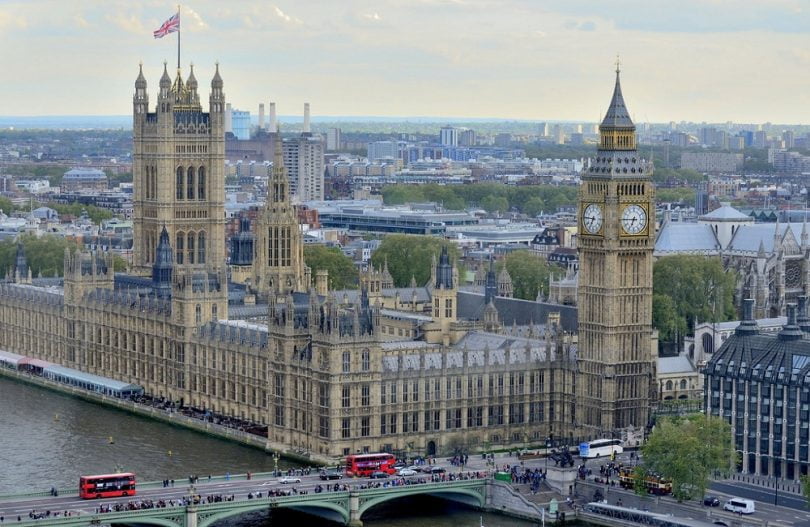With the snap election coming soon, we’ve had a look at how key political leaders have previously voted on important women’s issues.
2006: Reducing legal abortion to 21 weeks and introducing compulsory counselling for women seeking abortion and a cooling off period.
The bill would’ve seen women be given all knowledge and advice she needed before deciding to have an abortion. However, many argued that the move was based on a campaign fuelled and funded by religious conservatives.
Jeremy Corbyn and Tim Farron voted against. Theresa May did not vote.
2008: Reducing the legal abortion limit from 24 weeks to 22 weeks.
MPs rejected the call for reducing the limit after pro-choice campaigners said there was no evidence of improved survival rates. Pro-life campaigners, stated a baby’s rights should be considered at the point it had the “chance of life."
Theresa May and Jeremy Corbyn both voted against. Tim Farron did not vote.
There was also a vote on reducing the legal abortion limit to 16 and 12 weeks which was rejected.
2011: Amendment to ban independent abortion providers giving counselling to women seeking termination.
Parliament rejected proposals to make changes to the counselling services. The bill was based on present legislation meaning the NHS aren’t required to offer professional or impartial help to women considering an abortion.
Jeremy Corbyn voted against. Theresa May and Tim Farron did not vote.
2011: Women receiving their state pension at 65 by 2018 instead of 2020
Under the new act women won’t be able to claim their pension until they are 65, this is set to come into effect by 2018 instead of 2020.
Theresa May and Tim Farron voted for. Jeremy Corbyn voted against.
There was another vote on adding extra support for women affected by increases in pension in 2016.
Jeremy Corbyn voted for.Theresa May and Tim Farron did not vote.
Graph of Women's State Pension Age Injustice #WASPI pic.twitter.com/flJ0VwxZuc
— #WASPI Campaign (@WASPI_Campaign) October 10, 2015
2013: Draft legislation setting monetary elements and thresholds related to Child Tax Credit and Working Tax Credit.
The Government voted on if changes should be made to the thresholds at which citizens are allowed to claim Child Tax Credit and Working Tax Credit.
Theresa May and Tim Farron both voted for. Jeremy Corbyn voted against.
2014: Bill requiring over 250 companies to publish their gender pay gaps.
The bill was passed by the Government and will now see big firms having to publish their employee pay differences. Originally it was scheduled to be unveiled in 2016.
Jeremy Corbyn and Tim Farron voted for. Theresa May did not vote.
2015: Tampon Tax.
The Government passed a bill to tax feminine hygiene products, something many campaigned against. It was stated the money this tax brought in would go into helping women’s charities.
Theresa May and Jeremy Corbyn both voted for. Tim Farron did not vote.
2015: Amendment to explicit gender selective abortion
The amendment to the Serious Crime Bill (also known as the Abortion (Sex-Selection) Bill), was designed to make it illegal for doctors to terminate pregnancies due to the sex of the foetus. MPs voted in favour of not making changes.
Theresa May and Jeremy Corbyn both voted against. Tim Farron did not vote.
2015: Welfare reform and work bill
The bill will implement changes to Support for Mortgage Interest and reductions in social housing rents to reduce expenditure and “achieve a more sustainably welfare system”.
Theresa May voted for, Jeremy Corbyn voted against. Tim Farron did not vote.
There was another vote on the Welfare reform and work bill to repeal tax credit regulations.
Theresa May voted for, Jeremy Corbyn voted against. Tim Farron did not vote.
The Welfare Reform and Work Bill is an opportunity to have a real debate about how we define and tackle child poverty http://t.co/PYDQItZggY
— John Glen (@JohnGlenMP) July 20, 2015
2015: Reducing amounts paid in tax credits
The Government voted on an amendment to 2015 regulations and a reduction in the rates of tax credits.
Theresa May voted for. Jeremy Corbyn and Tim Farron voted against.
2017: Decriminalising abortion up to 24 weeks
Under the Abortion Act 1967 it is legal to have an abortion up to 24 weeks, after that it’s illegal unless there is risk to the woman or foetus health. MPs voted for full decriminalisation against section 58 and 59 of the Offences Against the Person Act 1861.
Jeremy Corbyn voted for. Theresa May and Tim Farron did not vote.
2017: Istanbul Convention second reading
The Istanbul Convention is the first legally-binding convention to create a comprehensive legal framework and approach to combat violence against women.
Jeremy Corbyn voted for. Theresa May and Tim Farron did not vote.
There was another vote on the Istanbul Convention ratification.
None voted.









